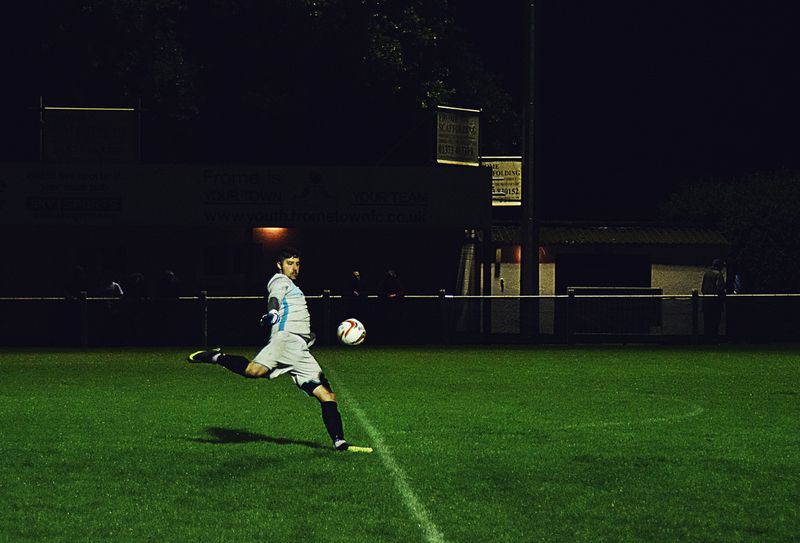Theo Walcott: Reflections on a Football Career
Introduction
Theo Walcott, the former Arsenal and England winger, has made the unexpected decision to retire from professional football at the age of 34. This announcement brings an end to a remarkable career that saw Walcott make 563 club appearances and earn 47 caps for the England national team. Walcott’s retirement raises questions about his next moves and potential contributions to the world of football.
A Look Back at Walcott’s Career
Walcott burst onto the scene as a young prodigy when he made his debut for Southampton at the tender age of 16, becoming the club’s youngest-ever player. His incredibly quick pace and technical abilities quickly drew the attention of top clubs, and in 2006, he made the high-profile move to Arsenal.
During his time at Arsenal, Walcott showcased his potential and ability to score goals, often using his blistering speed to leave defenders in his wake. He played a pivotal part in the Gunners’ success, contributing to their FA Cup triumphs and consistent top-four finishes in the Premier League. His performances at Arsenal earned him a regular place in the England national team, with Walcott representing his country in major tournaments such as the World Cup and European Championship.
However, injuries took their toll on Walcott, and his playing time gradually reduced. After a loan spell at Everton, he made a permanent move to the Merseyside club in 2018, hoping to rejuvenate his career. Although he showed glimpses of his former self, it was clear that Walcott’s best days were behind him.
Reasons for Retirement
Walcott’s retirement at the age of 34 may come as a surprise to many. However, it is important to understand the toll that injuries can have on a player’s body and mind. Walcott’s decision to retire is likely influenced by a combination of factors, including a desire for a more fulfilling next chapter in his life and concerns about his long-term physical well-being.
In recent years, we have seen more players opting for early retirement to prioritize their overall health and well-being. The awareness around mental health and the physical demands of professional football have grown significantly, allowing players to make more informed decisions about their future.
Walcott’s Next Move
As Walcott hangs up his boots, the question arises: what will be his next move? Many former footballers seek roles within the game, whether that be coaching, punditry, or other administrative roles. Walcott possesses a wealth of experience and knowledge, which could make him a valuable asset to any club or organization.
It will be interesting to see which path Walcott chooses to take. Coaching could be a natural fit for him, allowing him to impart his knowledge and experience to the next generation of players. Alternatively, punditry offers the chance to provide insightful analysis and commentary to fans around the world.
Regardless of his next move, Walcott’s contributions to football cannot be understated. He was a role model for aspiring young footballers and played a significant part in the success of both Arsenal and England during his career.
Editorial and Advice
A Life After Football
Theo Walcott’s retirement reminds us of the challenges and uncertainties that professional footballers often face. While the allure of the game and financial rewards are immense, players must also consider their long-term future. As fans, we should applaud individuals like Walcott who prioritize their overall well-being and pursue avenues outside of the playing field.
Exploring New Opportunities
For footballers contemplating retirement, it is crucial to plan for life after the game. This means exploring different avenues and taking advantage of opportunities to use their skills and expertise in different domains. Football clubs and organizations should also support players in transitioning to new roles, recognizing the value their experience can bring.
Mental Well-being
The decision to retire can bring about a range of emotions for athletes. It is important for them to focus on their mental well-being during this transitional phase. Seeking professional support, engaging in hobbies, and staying connected with peers can all contribute to a smoother transition into retirement.
Inspiring the Next Generation
Former players like Walcott have a unique opportunity to inspire and guide the next generation of footballers. By sharing their experiences, challenges, and successes, retired players can offer invaluable insights and advice to aspiring athletes. It is important for these individuals to embrace mentorship roles and contribute to the growth and development of the sport.
Conclusion
Theo Walcott’s retirement from professional football marks the end of an era for both Arsenal and England. His decision to prioritize his overall well-being is commendable, and it opens the doors to new opportunities and contributions. As Walcott reflects on his playing days, we should also reflect on the challenges faced by professional athletes and the importance of supporting their transition into retirement.

<< photo by Zac Frith >>
The image is for illustrative purposes only and does not depict the actual situation.
You might want to read !
- Editorial Exploration: The importance of Shankland to Hearts’ success and the consequences of losing him
Title: The Indispensable Shankland: Why Hearts’ Can’t Afford to Lose Their Talisman
- Fighting for the Stars: Jermell Charlo’s Ambitious Quest to Challenge Canelo Alvarez
- Buckingham Group Faces Financial Tumult with Administration Filing
- Scottish Football Renaissance: Hearts and Hibs Make Strides in European Competition
- Rosenborg vs Hearts: Where to Watch the Live Stream, TV Coverage, and Kick-off Time
- Liverpool’s Potential Signing of Endo from Stuttgart: A Strategic Move or a Gamble?
- Liverpool intensifies their pursuit of Cheick Doucoure: A crucial addition to the team’s defensive lineup
- The Premier League Divide: Differing views from Carragher, Carney, and Neville




